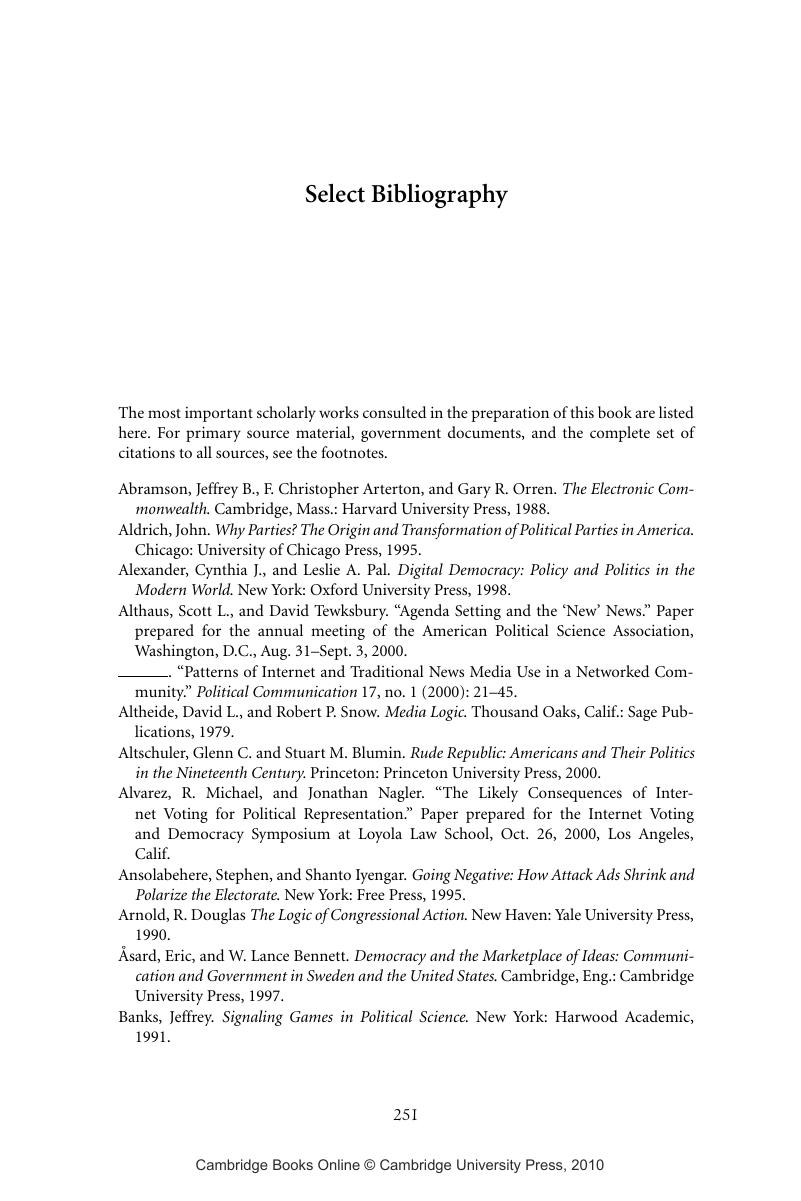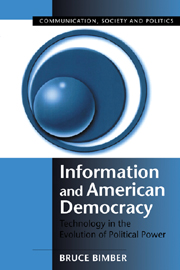Book contents
- Frontmatter
- Contents
- List of Figures and Tables
- Acknowledgments
- 1 Information and Political Change
- 2 Information Revolutions in American Political Development
- 3 The Fourth Information Revolution and Postbureaucratic Pluralism
- 4 Political Organizations in the Fourth Information Revolution
- 5 Political Individuals in the Fourth Information Revolution
- 6 Information, Equality, and Integration in the Public Sphere
- Select Bibliography
- Index
- References
Select Bibliography
Published online by Cambridge University Press: 19 December 2009
- Frontmatter
- Contents
- List of Figures and Tables
- Acknowledgments
- 1 Information and Political Change
- 2 Information Revolutions in American Political Development
- 3 The Fourth Information Revolution and Postbureaucratic Pluralism
- 4 Political Organizations in the Fourth Information Revolution
- 5 Political Individuals in the Fourth Information Revolution
- 6 Information, Equality, and Integration in the Public Sphere
- Select Bibliography
- Index
- References
Summary

- Type
- Chapter
- Information
- Information and American DemocracyTechnology in the Evolution of Political Power, pp. 251 - 262Publisher: Cambridge University PressPrint publication year: 2003



